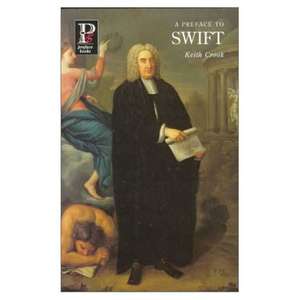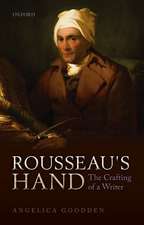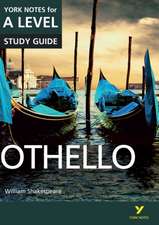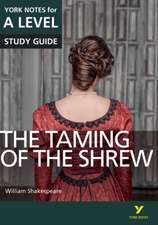A Preface to Swift: Preface Books
Autor Keith Crooken Limba Engleză Paperback – 3 sep 1998
While thematically arranged, the text follows a broadly chronological account of Swift's life to show his development as a writer from the prolific and inventive iconoclast to the mature satirist whose enduring memory of past events produced warm friendship as well as strong resentment. It considers in detail his engagement with the corruption of over-secure politicians and his opposition to the easy rationalism of free-thinking pundits. Gulliver's Travels is shown to be a coherent critique of eighteenth-century ideas of science, education and politics in which the order of the books ('the progress of the fable') is highly significant for its whole meaning. While this is a major focus, Keith Crook also discusses a wide range of Swift's other works, including his early satires, his political writings, his poems and his letters.
Detailed chronological charts place his life and works in the political and cultural context, and illustrations have been chosen with commentaries to extend the reader's sense of Swift's connections with London, Ireland and his contemporaries.
This will be a particularly useful introduction to students who are studying satire as a genre; the early eighteenth-century literary, scientific, philosophical and political context; the representation of women; the political relation of Ireland to England; and the position of the artist within society, especially in connection with the levers of power.
| Toate formatele și edițiile | Preț | Express |
|---|---|---|
| Paperback (1) | 264.59 lei 43-57 zile | |
| Taylor & Francis – 3 sep 1998 | 264.59 lei 43-57 zile | |
| Hardback (1) | 708.13 lei 43-57 zile | |
| Taylor & Francis – 22 aug 2017 | 708.13 lei 43-57 zile |
Din seria Preface Books
- 15%
 Preț: 424.54 lei
Preț: 424.54 lei - 16%
 Preț: 260.54 lei
Preț: 260.54 lei -
 Preț: 307.45 lei
Preț: 307.45 lei -
 Preț: 468.79 lei
Preț: 468.79 lei -
 Preț: 280.14 lei
Preț: 280.14 lei -
 Preț: 388.68 lei
Preț: 388.68 lei -
 Preț: 350.82 lei
Preț: 350.82 lei - 15%
 Preț: 692.61 lei
Preț: 692.61 lei -
 Preț: 435.17 lei
Preț: 435.17 lei -
 Preț: 321.01 lei
Preț: 321.01 lei -
 Preț: 419.07 lei
Preț: 419.07 lei -
 Preț: 412.27 lei
Preț: 412.27 lei -
 Preț: 323.23 lei
Preț: 323.23 lei -
 Preț: 475.16 lei
Preț: 475.16 lei -
 Preț: 413.13 lei
Preț: 413.13 lei -
 Preț: 354.21 lei
Preț: 354.21 lei -
 Preț: 389.38 lei
Preț: 389.38 lei -
 Preț: 249.06 lei
Preț: 249.06 lei - 15%
 Preț: 423.81 lei
Preț: 423.81 lei -
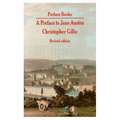 Preț: 352.93 lei
Preț: 352.93 lei
Preț: 264.59 lei
Nou
Puncte Express: 397
Preț estimativ în valută:
50.63€ • 52.99$ • 42.14£
50.63€ • 52.99$ • 42.14£
Carte tipărită la comandă
Livrare economică 31 martie-14 aprilie
Preluare comenzi: 021 569.72.76
Specificații
ISBN-13: 9780582289789
ISBN-10: 0582289785
Pagini: 264
Dimensiuni: 138 x 216 x 14 mm
Greutate: 0.45 kg
Ediția:1
Editura: Taylor & Francis
Colecția Routledge
Seria Preface Books
Locul publicării:Oxford, United Kingdom
ISBN-10: 0582289785
Pagini: 264
Dimensiuni: 138 x 216 x 14 mm
Greutate: 0.45 kg
Ediția:1
Editura: Taylor & Francis
Colecția Routledge
Seria Preface Books
Locul publicării:Oxford, United Kingdom
Cuprins
Part 1: The Writer and his Setting 1. A Brief Life of Swift. A sketch of the man and of some significant issuesThe Anglo-Irish 'Ascendancy'. The formative context for Swift. Secretary to the Temple, 1689-1699. Literary and priestly ambitions. First satiric works: The Battle of the Books and A Tale of a Tub. The wit and the ministers, 1700-1714. The pull of England. London life: The Journal of Stella. Archbishop King and Dean Swift, 1713-1729. The genesis of Gulliver's Travels. Choice friends. 2. Politics and the Individual. Church and monarchPolitical parties and issue groups. Swift's change of direction. Swift's definitions of party. Harley's patronage. St. John and Harley. The Examiner. The Conduct of the Allies. End of the ministry. Preferment: Bolingbroke and Oxford's treatment of Swift. Bolingbroke on Swift. Oxford and Swift. Oxford's contribution to politics. 3. Swift's London and Ireland. Swift's audience. The reading public and literary taste. Literacy. The coffee house London illustrated (1708-1714). Bickerstaff Papers, 1708. The Tatler, 1709. A Description of the Morning, 1709. A Description of a City Shower, 1710. Search for community: Tatlers and Scriblerians. Break with the Whigs. Swift breaks with Steele and Addison. The Scriblerus club. Swift's friends: Gay and Arbuthnot. The Uses of Exile. Home thoughts from Ireland (1710-1737). Ireland's claim. A Proposal for the Universal Use of Irish Manufacture, 1720. The Draiper's Letters, 1724, and Lord Lieutenant Carteret. Gulliver's Travels, 1726Bolingbroke as a formative influence. Pope and the elucidation of Gulliver's Travels. Philosophy versus satireThe published correspondence with Pope. A Modest Proposal, 1729. 4. Women and the Body. Swift's relationships with women. Domination and friendship. Pains of friendship. Female friends. The bounds of decencyFemale schooling. Sexual intimacy. Poems to Stella. To Stella, Visiting me in my Sickness, 1720?. To Stella, Who Collected and Transcribed his Poems, 1720?. Vanessa at arm's length. The question of morbidity and scatological coarseness. The morbid poems. Death and Daphne. A Beautiful Young Nymph Going to BedThe scatological poems. The Lady's Dressing room, 1732. Stephon and Chloe, 1731. Mary the Cook-Maid's Letter to Dr Sheridan, 1718. 5. Swift and Contemporary Ideas. The Royal Society. Travelogues and 'my cousin Dampier'. Locke: society and contract. Science and language. Locke: empirical philosophy. Language in Gulliver's Travels. Imagination in Gullivers's Travels. The progress of the fable. Part 2: Critical Survey. 6. Critical Survey of Selected Passages. Poetry. Extract from Baucis and Philemon, 1709. Extract from The Author Upon Himself, 1714. Extract from On Poetry: A Rhapsody, 1733. Prose. A Tale of a Tub, 1704Gulliver's Travels, 1726. Book I extract. Book II extract. Book III extract. Book IV extract. A Modest Proposal, 1729. Part 3: Reference Section 7. Biographical Notes. Gazeteer. Commentary on IllustrationsBibliography. Index
Descriere
While thematically arranged, this text follows a broadly chronological account of Swift's life to show his development as a writer from the prolific and inventive iconoclast to the mature satirist. It considers his engagement with the corruption of over-secure politicians and his opposition to the easy rationalism of free-thinking pundits. Gulliver's Travels is shown to be a coherent critique of eighteenth-century ideas of science, education and politics. Keith Crook also discusses a wide range of Swift's other works, including his early satires, his political writings, his poems and his letters.
